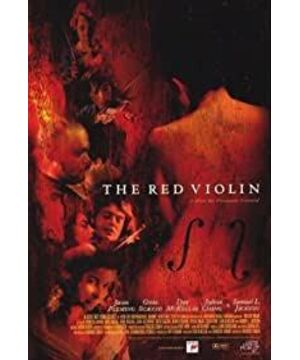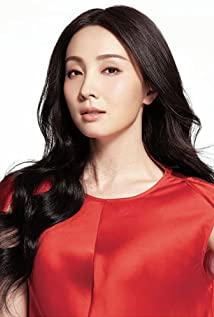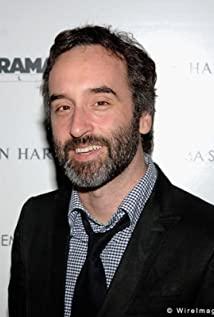I seldom watch domestic films all the time, and I feel that the meaning they are trying to express is too profound for people to understand. The day before yesterday, I accidentally watched a semi-domestic "Rogues League". I really don't know what to say, except for Zeng Zhiwei, who is more involved in the play, whether it is Jean Reno or Shu Qi, it seems that they are all going for the salary. Andy Lau reluctantly recites the lines prescribed by the director, which is really terrible. So the afterthought is also lackluster. In desperation, I looked through the collection and found this 1998 "Red Violin".
It is about three hundred years of experience of violins made by famous Italian masters in the 17th century.
Originally, the master violin maker made a wonderful violin, which he gave as a gift to his wife and children out of love for his soon-to-be child. At this time, his wife died in childbirth. In addition to grief, he smeared his wife's blood on this new violin to express his thoughts for his wife. Since then, this violin has been wandering around, and it has a lot of stories.
The film expresses the theme of love and destiny. The violin is like a calm observer who sees the fate of different people in different countries in the changing times.
In the first story, the violin was acquired by a child in an orphanage, who, under the careful care and training of a musician, became a musical prodigy. However, because of his humble background, he was discriminated against by nobles, and the prince who listened to his audition only cared about the value of the violin in the child's hands. In the end he died under the contemptuous eyes of the powerful.
The violin fell into the hands of a musician Buffedi, as the maid who used tarot divination said: "He is handsome and smart, he seduces you with his talent, he is the devil". In the eyes of his girlfriend, "he is an artist, it should be said that he is a poet, but he is also a murderer." These plots seem to use anecdotes from Prince Venosa and Tartini, with Buffidi taking advantage of women and taking inspiration from eroticism, and using this violin to play the "devil's trill" that captivates the audience. Until he abandoned this love.
The violin, who lost his love, went through all kinds of hardships and came to China, and the tarot card said: "There will be a trial, a great trial in front of a person in power, and you will be found guilty." The trial of music and love is what we are the Cultural Revolution experienced. All the emotions that people once had were wiped away, and only revolution and rebellion remained, and only the Red Guards' battle song remained. True love and music have gone away with Ma Sicong and Gu Shengying. After a catastrophe, our culture still staggers slowly forward.
At the dawn of the new century, the red violin finally ended its 300-year journey and returned to the West. However, it is surrounded by money and fame. The auction brought in American music connoisseurs to value the red violin. The musician's conclusion after auditioning a piece: "It's nothing special". People use the most modern technology to examine its quality, paint, and spread the anecdotes attached to it with relish. And that's what collectors care about. The purpose of buying this red violin with millions of dollars is to collect it and show it off. The only thing people forget is music and love.
Fortunately, the final destination of the violin is perfect. Through it, it conveys a father's love for his child.
The film's theme song "Anna's Theme" was composed by American composer Corigliano and won the Academy Award for Best Score. This melody is a short melody that Anna, the luthier's wife, often hums. This is a piece of music with beautiful melody and deep temperament, ancient and mysterious. In every story, this poignant "Anna's Theme" appears in the film. Even during the Cultural Revolution, when Xiang Bei was carefully wiping the dust off his violin, "Anna's Theme" appeared again, but only vaguely. It is only presented for a few seconds, but the timbre is more oppressive and dark. At the same time, it also combines a song of the Red Guards to point out the unique background of the times. At the end of the film, when Moritz, an American music connoisseur, was guessing the origin of the red lacquer, the poignant "Anna's Theme" appeared again in the film. Moritz's silent expression seemed to hear Anna's singing and understand the meaning of the music. It was the silent response to Anna on the violin.
The film reminds people in beautiful music that in this materialistic society, there are more important things than money worth pursuing with our lives.
View more about The Red Violin reviews











